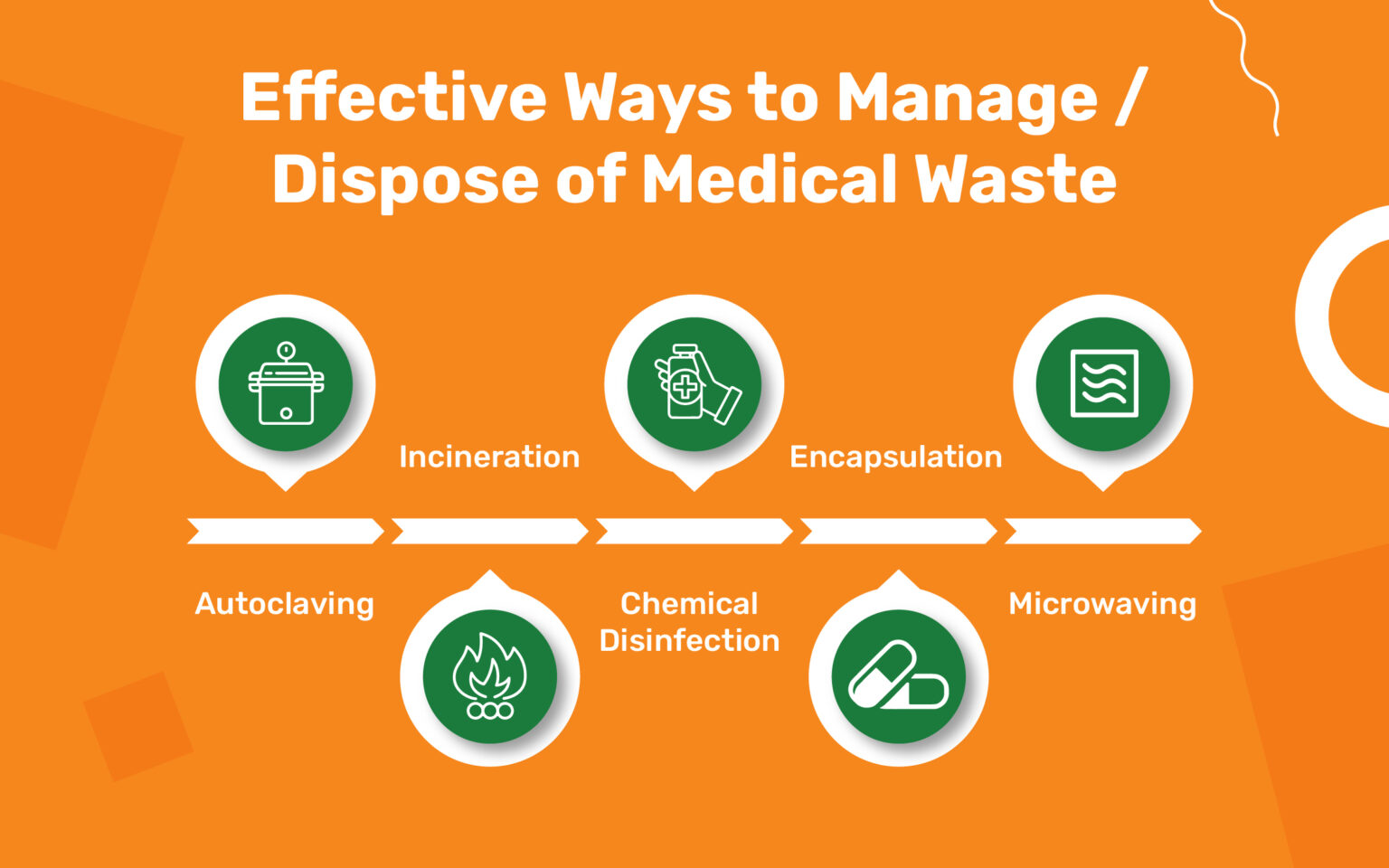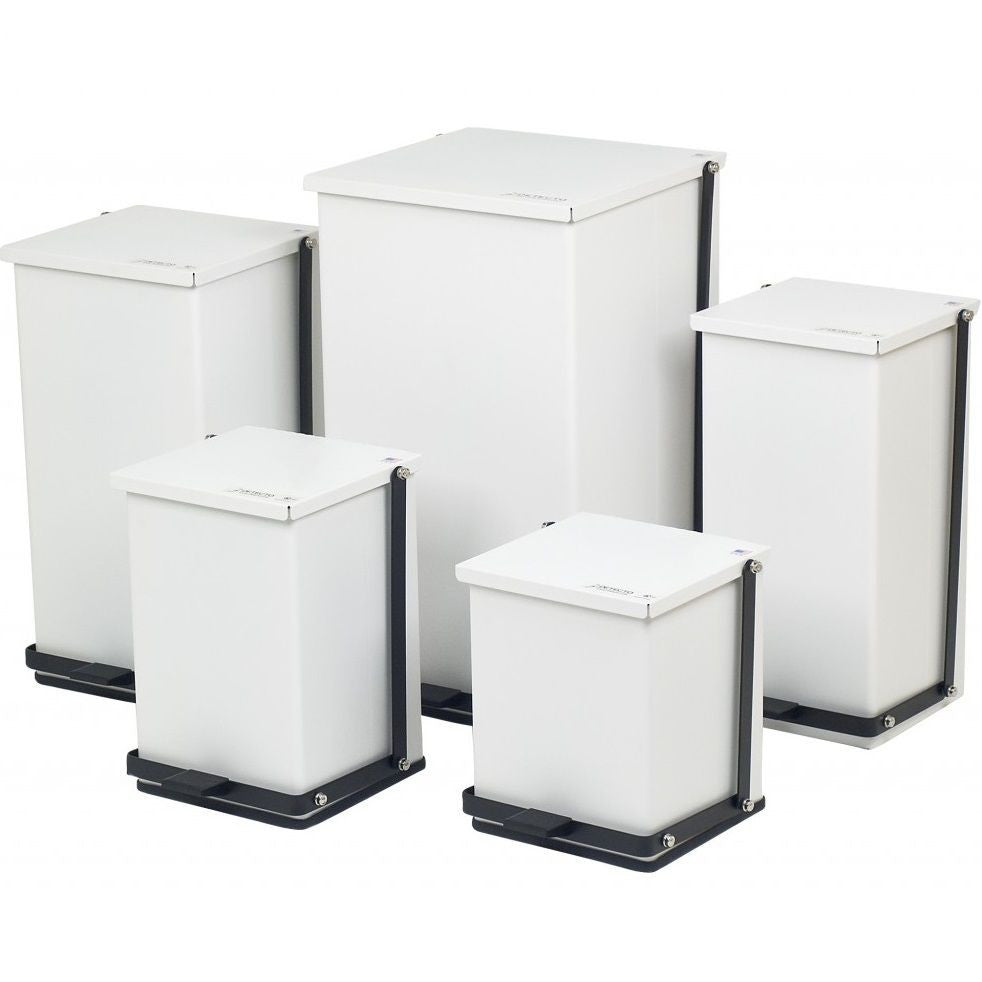Stay Compliant and Safe: How to Dispose of Medical Waste Correctly
In today's ever-changing health care landscape, making sure conformity and safety when it comes to medical waste disposal is of utmost significance. In this conversation, we will check out the different kinds of clinical waste, the affiliated risks, the legal requirements, and the best practices for preserving a compliant and risk-free clinical waste administration system.
Value of Correct Clinical Garbage Disposal
Correct clinical garbage disposal is of utmost value in making certain the safety and security and health of both medical care employees and the basic public. Clinical waste, that includes products such as utilized needles, polluted dressings, and expired medications, poses serious health threats otherwise managed and thrown away appropriately.

Furthermore, inappropriate disposal of clinical waste can cause ecological contamination. When medical waste is not segregated, treated, or disposed of appropriately, it can locate its method right into land fills or bodies of water, possibly polluting the water, soil, or air resources. This can have damaging effects on communities and human health, as unsafe compounds may seep into the atmosphere or be released into the ambience.
Sorts Of Clinical Waste and Their Risks
The diverse variety of medical waste generated by medical care centers presents numerous dangers that should be carefully resolved to make sure proper disposal and protect against prospective harm to public wellness and the environment. Clinical waste can be categorized right into different groups based on its characteristics and degree of risk.
One kind of medical waste is contagious waste, which includes things that are contaminated with blood or various other potentially contagious materials. This can include made use of needles, syringes, and other sharp things, as well as cells, swabs, and dressings from patients with contagious diseases. Incorrect disposal of transmittable waste can result in the transmission of unsafe pathogens and the spread of infections.
One more group is contaminated materials, which consists of materials that are harmful, combustible, corrosive, or reactive. This can consist of chemicals, drugs, and certain medical tools. Messing up or improper disposal of contaminated materials can cause environmental contamination and position dangers to the wellness of waste workers and the public.
Radioactive waste is an additional kind of medical waste that should be very carefully taken care of. This waste includes materials which contain contaminated materials, such as made use of radiation therapy sources or contaminated lab materials. Inappropriate handling or disposal of contaminated waste can bring about radiation exposure and serious health dangers.
Finally, non-hazardous general waste, such as paper, product packaging products, and food waste, is likewise created by medical care centers. While this waste may not present considerable dangers, it still requires to be appropriately taken care of to preserve tidiness and stop the destination of bugs.
To make certain the secure disposal of clinical waste, health care facilities should execute proper segregation, therapy, transport, and storage methods. This consists of making use of proper containers, labeling, and training for personnel, as well as adhering to neighborhood guidelines and guidelines. By dealing with the dangers connected with different sorts of clinical waste, medical care centers can secure public health and the setting.
Regulatory and lawful Demands for Disposal
In order to guarantee the secure and appropriate disposal of medical waste, healthcare centers should adhere to lawful and regulatory needs. These demands remain in location to protect public health and wellness and the environment from the possible risks connected with medical waste. Clinical waste is categorized as an unique classification of waste as a result of its prospective to send contagious conditions and include hazardous materials.

Some usual requirements include the segregation and correct product packaging of medical waste, the use of authorized labels and containers, and the application of risk-free handling and transport treatments - medical waste removal service. Health care centers might additionally be required to maintain records of their waste administration techniques and give documentation to regulative authorities upon request
Failure to abide by these governing and lawful requirements can result in penalties, fines, and reputational damage for healthcare facilities. It is, for that reason, crucial for doctor to prioritize compliance and establish robust waste management protocols to ensure the proper and secure disposal of clinical waste.
Ideal Practices for Safe Medical Waste Monitoring
Health care facilities should comply with industry best techniques to make certain the efficient and risk-free management of medical waste - medical waste disposal services with WasteX. Executing these finest techniques not only aids secure the environment and public health and wellness but likewise reduces the threat of potential lawful and financial repercussions
Among the essential finest practices is the appropriate segregation and control of various types of clinical waste. This involves utilizing color-coded containers and plainly labeling them to make certain that each sort of waste is disposed of properly. In addition, healthcare facilities need to have designated areas for storage space and disposal of clinical waste, with clear guidelines and procedures in check my site position.
Another essential element of secure medical waste administration is the training and education and learning of medical care staff. All workers that take care of medical waste ought to get thorough training on the proper handling, storage, and disposal procedures. It is important to make certain that personnel recognize the prospective dangers related to clinical waste and are equipped with the necessary knowledge and skills to handle it safely.
Routine tracking and auditing of waste administration methods is additionally crucial. This entails regularly evaluating waste management procedures, conducting evaluations, and preserving accurate records. By keeping track of waste management practices, healthcare centers can visit the website recognize any kind of possible concerns or locations for enhancement and take restorative actions accordingly.
Last but not least, medical care centers must prioritize making use of eco-friendly disposal approaches whenever possible. This includes making use of waste therapy innovations such as autoclaving or incineration, which can assist reduce the quantity and harmful nature of medical waste.
Eco-Friendly Solutions for Medical Waste Disposal
Applying i thought about this green options for medical garbage disposal is critical for health care facilities to decrease ecological impact and make certain lasting practices. Typical techniques of clinical waste disposal, such as incineration and landfilling, have actually been discovered to release unsafe contaminants into the air and infect soil and water resources. Consequently, there is an expanding requirement for different techniques that are both ecologically pleasant and risk-free.
These systems make use of cutting-edge technologies to securely refine clinical waste within the medical care facility itself. By treating the waste on-site, transport exhausts and risks associated with off-site disposal are minimized.
An additional eco-friendly method is the fostering of reusing programs for particular sorts of medical waste. Materials such as glass, plastics, and steels can be reused instead of disposed of in land fills. By applying segregation and reusing programs, health care facilities can significantly reduce their waste volume and reduce their ecological footprint.
Additionally, health care centers can check out using multiple-use clinical tools and products. By choosing multiple-use products, as opposed to single-use choices, the quantity of waste produced is substantially minimized. Recyclable products can be disinfected and utilized several times, leading to expense savings and less environmental impact.
Verdict
In final thought, proper disposal of clinical waste is crucial for keeping compliance and making certain security. Adhering to finest techniques for risk-free clinical waste management and discovering eco-friendly options can add to a accountable and lasting method to lose disposal in the healthcare market.
In this conversation, we will check out the numerous kinds of medical waste, the affiliated risks, the legal needs, and the best practices for preserving a secure and compliant clinical waste management system - medical waste removal service.One kind of clinical waste is infectious waste, which includes products that are infected with blood or various other potentially infectious materials.Contaminated waste is an additional kind of clinical waste that should be very carefully taken care of. Clinical waste is identified as a special category of waste due to its prospective to transfer contagious conditions and have harmful materials
Following finest methods for risk-free clinical waste administration and checking out green remedies can contribute to a sustainable and responsible strategy to throw away disposal in the medical care sector. medical waste disposal services with WasteX.